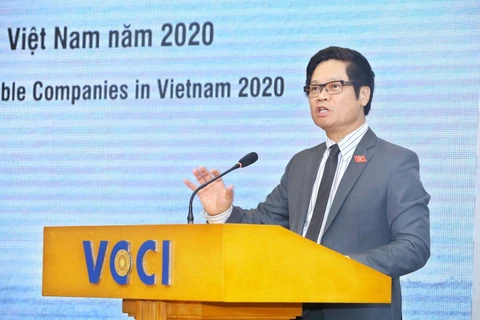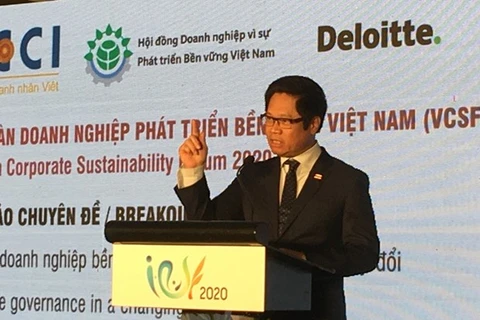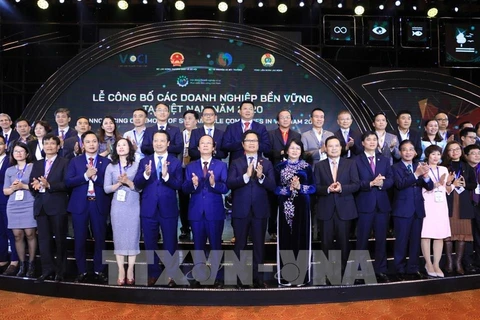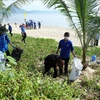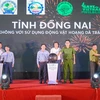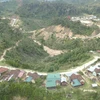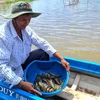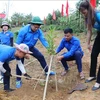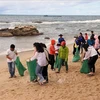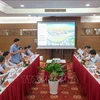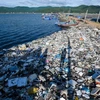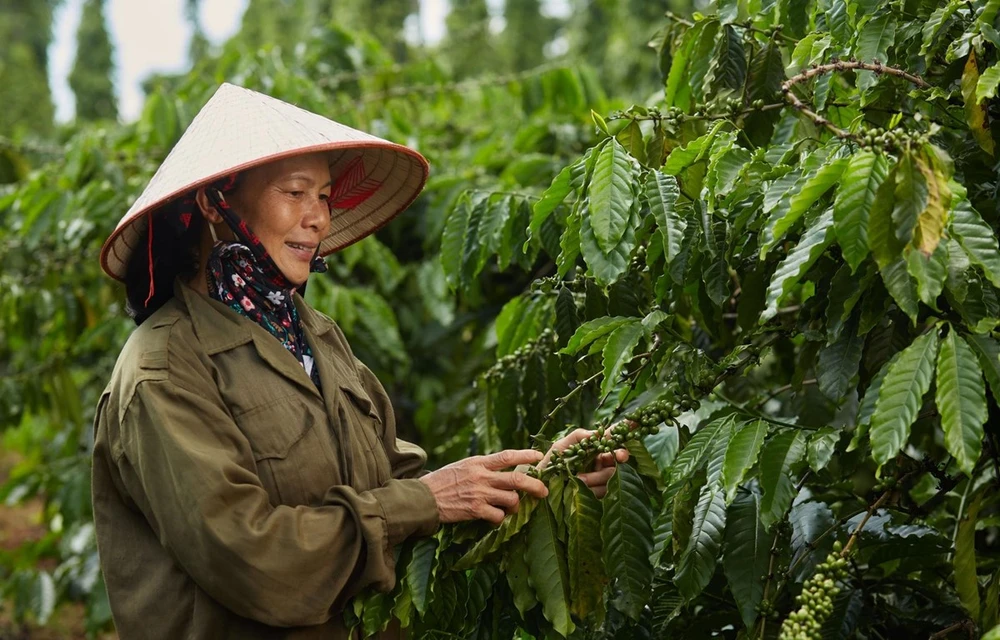
Hanoi (VNA) – “If we only focus on immediate benefits, it is difficult to go far but if we want to grow high and reach far, sustainable development is the only way,” said Binu Jacob, CEO of Nestle Vietnam, who is co-chair of the Vietnam Business Council for Sustainable Development (VBCSD).
Nestle Vietnam is committed to building and shaping a waste free future, with a goal of having all its packaging recycled and reused, while continuing to promote gender equality and enhance women’s empowerment at the workplace and during the company’s value chain, he said at the Vietnam Corporate Sustainability Forum 2020 (VCSF 2020).
The forum took place in Hanoi on December 10 with the theme “Sustainable development in the new decade: Turning Challenges into Opportunities”. It was co-organised by the Vietnam Chamber of Commerce and Industry (VCCI) and the VBCSD.
Sustainable development the only path
Jacob said sustainable development is an inevitable trend in the world as well as in Vietnam. Therefore, the VBCSD developed a set of CSI indicators with criteria for sustainable development based on three pillars of harmony between economy, society and environment, based on international standards and Vietnamese practice. The indicators serve as a measure, direction, and guidance for businesses to improve governance, business efficiency and develop environmentally friendly, towards more human values.
According to him, Nestle Vietnam has a sustainability committee and other working groups, which meet every month for discussions towards sustainable development.
“We identify and accompany stakeholders in a comprehensive and sustainable development strategy to overcome the crisis, especially in the context of the COVID-19 pandemic, which has many far-reaching impacts on economy and society,” Jacob said, adding that if we only focus on immediate benefits, it is difficult to go far but if we want to grow high and reach far, sustainable development is the only way.
 Binu Jacob, CEO of Nestle Vietnam, who is co-chair of the Vietnam Business Council for Sustainable Development (VBCSD) (Photo VietnamPlus)hập mô tả cho ảnh
Binu Jacob, CEO of Nestle Vietnam, who is co-chair of the Vietnam Business Council for Sustainable Development (VBCSD) (Photo VietnamPlus)hập mô tả cho ảnh Asked about targets selected by Nestle Vietnam to achieve sustainable development, the CEO said “Create Shared Value” is the foundation for Nestle's sustainable development strategy, bringing benefits to both the company and the communities the company worked with. Individuals and families, communities and the planet are the three impact groups Nestle Vietnam have linked together through shared commitments to achieve its goals in line with the roadmap of the United Nations Sustainable Development Goals (SDGs) by 2030.
“We have been working hard to achieve the SDGs in all markets including in Vietnam. We have annual sustainability reports to measure and evaluate the sustainable progress has been made and achieved on these SDGs,” said Jacob.
He went on to say that to maximise resources and ensure the recorded progress, the company is focusing on targets of priority of both Vietnam and the world. In Viet Nam, the company prioritises dealing with climate change issues, reducing CO2 emissions throughout the entire operations and supply chain of the company and protecting water resources sustainably.
Speaking on Nestle Vietnam’s typical initiatives that have benefit the community and won recognition, the CEO mentioned that the United Nations Agency on Gender Equality and the Empowerment of Women (UN Women) recently awarded the Principles of Empowering Women (WEPs) award to Nestle Vietnam for its commitments and achievements.
Another example is the NESCAFE Plan, which encouraged farmers to carry out sustainable coffee development. Starting 2011, the project has brought lots of innovations and new technologies to create a positive impact on the sustainable development of Vietnam's coffee industry and improving the lives of farmers and local people.
Jacob affirmed that the project has contributed to the development of chain link strengthening, and increasing quality and value for Vietnamese coffee beans, aiming to make Vietnam a reference for world robusta coffee.
Moreover, Nestle Vietnam has upheld its commitment to building and shaping a zero waste future, he said, stressing that all factories of the company in Vietnam have achieved the goal of not having solid waste landfilled into the environment. Aiming for more environmentally friendly alternatives, Nestle Vietnam is the first food business in Vietnam to use FSC certified paper straws for instant nutritional products.
The company is also active in communicating perceptions and working with partners and businesses in the community to make a greater impact on the matter, Jacob said, adding that Nestle Vietnam and Lavie Vietnam, a member of the Nestle group, are the two founding members of the Vietnam Packaging Recycling Alliance (PRO Vietnam).
He went on to say that to deal with crisis caused by the COVID-19 pandemic, the company has put human health and lives first with a priority strategy "5 + 1" to ensure the safety of its employees, optimise the supply chain to ensure smooth production and business operations, optimise distribution and retail channels to ensure all goods being distributed to consumers through daily inventory and tracking, flexible approach to consumers with advertising initiatives aimed at connecting, inspiring and encouraging people to experience life at home, contributing to strict implementation of the social outreach and joining hands to support the Government and community and finally managing one’s finances.
“As the co-chair of the VBCSD, our goal is to inspire and help the business community realise and fulfill the role of sustainable businesses. We believe that by sharing experiences and practical lessons, businesses can thrive together and be part of the solutions to sustainability,” the CEO of Nestle Vietnam said.
VBCSD was established in 2010, bringing together major enterprises and prestigious social organisations to lead the way to sustainable development.
It serves as a bridge facilitating close coordination and dialogue between the business community, the government and social partners to promote sustainable development.
The council is a partner in the Global Network of the World Business Council for Sustainable Development (WBCSD)./.


